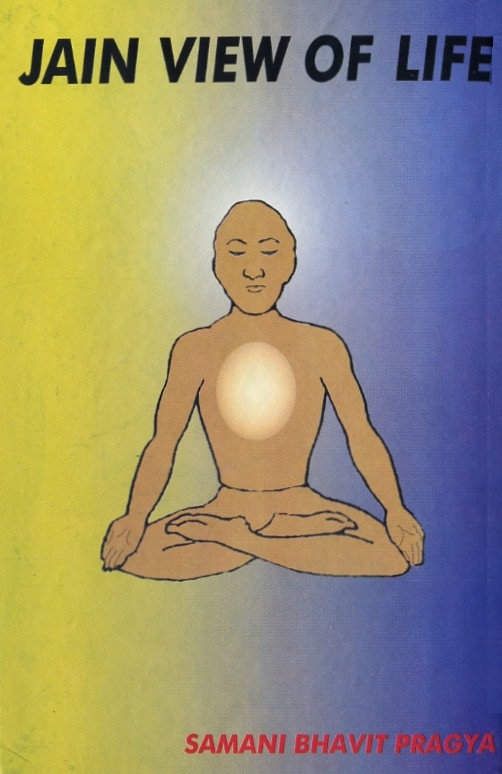Restraint
Restraint means control over passions and the activity of the sense organs. Observance of five great vows, practice of five samiti (comportment), renunciation of mental, verbal and physical violence are all forms of restraint. It is said that if a monk is fully aware or fully emerged in self-restraint, he feels his life being in heaven, whereas one who is not saintly in action has a life like one in hell. A wild and non-restrained person is like a ball of fire. No matter where you touch it, a ball of fire would always burn you. In a similar way, an unrestrained person would give suffering to anyone around him. Even in his sleep he is violent, so no matter whether he is awake, he is violent and vengeful.
Self-restraint is the quality that distinguishes a man from an animal. Self-control is the center of all human virtues. Unless a man gives full freedom to sense objects, he does not become a slave of them. The senses, mind and intelligence are the sitting places of lust which veils the knowledge of living beings and bewilders them. Sense objects are stumbling blocks on the path of self-realisation. Sense indulgence is detrimental to spiritual development. Therefore the senses should not be utilised for unnecessary personal enjoyment. Only necessary activities should be performed.
The ear perceives sound. The skin all over the body is endowed with the sense of touch. The eyes recognise form. The tongue experiences taste. The nose detects up scents. With the help of the five senses, the faculty of feeling is experienced in the mind. The intellect is that which distinguishes the good from the bad, the agreeable from the disagreeable. Too much indulgence in sense objects such as words, form, smell, taste or touch, is detrimental for everyone. A deer likes melody, and hence he would be attracted to the sound of a hunter's horn, which would lead to his death. A bee likes the smell of pollen, spends the # whole day inside a flower and at dusk, the flower closes and the bee is trapped inside the flower and dies. A moth likes light emitted from a candle, it flies into the flame and burns to death. Fish loves the taste of a fisherman's bait and due to attachment of taste it is killed by the fisherman's rod. Elephants like the sensation of rolling in mud, the mud is so soft that it causes death to them. All of the above souls indulge in one sense and cause to die. Hence what about the humans who indulge in all five senses.
Abandonment of pleasures from sensual objects and indulgence in worldly pleasures are the utterly divergent paths from the spiritual upliftment, just as the ways of the East and the West are different, so two are the paths of self-restraint and lack of self-restraint. The way of using sense object can be changed. Forms perceived by the eyes can be beheld in the perception of the soul. Auspicious utterances, like chanting mantras, songs, regarding elevating soul from worldly enjoyment can be heard. The wholesome food can be merely taken for the nourishment of the body and spiritual practices. The act of relishing and the idea of enjoying the meal can be eliminated. The smelling of the flowers can be felt without attachment and hate. All actions related to the senses can be performed without attachment and aversion. Let us see, hear, smell, taste and touch anything we like to. The only thing that one must do, is to prevent passions from colouring one's perception. In this way, the five senses are sanctified. Thus, the sensual pleasure is transformed into the spiritual pleasure.
A self-restraint person withdraws his senses from sense objects, like the tortoise draws his limbs within the shell. One who restrains the senses and the mind, becomes - a complete introvert. For them, the physical life goes on mechanically, while the mind reveals within the self. When the mind gets merged in soul (Atma), all the actions of the senses and life energy are automatically sanctified.
Lord Mahavira and Lord Buddha revealed the value of self-restraint. In their words, "The spiritual practitioner who walks with restraint, stands with restraint, sits with restraint, sleeps with restraint, takes meal with restraint, talks with restraint is not bound by the sin". The Gita explains the same hoary, "A person who moderates himself in eating and recreation, is calm in his action, regulates in sleep and wakefulness, yoga becomes the destroyer of pain." These restraints make life moderate and wakeful for spiritual upliftment.
As we see that sleep causes rest and relaxation, tones the system, but over or under indulgence in sleep it aggravates inertia. Food nourishes the body but overeating makes a person obese and under eating makes him weak, which is a hindrance to the practice of spiritual upliftment. So, moderation in each and every action is a part and parcel of a spiritual practitioner. The disciplined soul rests in itself, frees from desires of objects. Wind creates a storm in the sea, and the wind of desire creates a commotion in the mind. Desirelessness makes the mind pure and uncontami-nated.
A number of problems can be solved by restraint alone. Today, economists talk about increased production of goods. It is necessary for religious leaders to talk about restraint scientifically. Today's problems are related to luxury and covetousness. It is a pitiable situation of a country in which one class lives in a life of luxury, while another class suffers from poverty. If wealthy people observes restraint, the hardships of the deprived people can be solved. Restrained use of the natural resources such as water and vegetation could prevent pollution and the destruction of the environment.
A disciple asked Lord Mahavira, "What does a living being get through self restraint?". Lord Mahavira replied, "Through self-restraint, he prohibits the influx of karmas. He increases neutrality and weakens external attraction. In Aristotle's words, "Brave is he who overcomes desires, than he who overcomes his enemies". Lord Mahavira said, "A warrior on the battlefield may conquer a million foes, but the greater warrior is he who conquers himself." Self-restraint is the royal road to peace, happiness and prosperity, which ultimately leads a person to salvation.
 Samani Bhavit Pragya
Samani Bhavit Pragya
